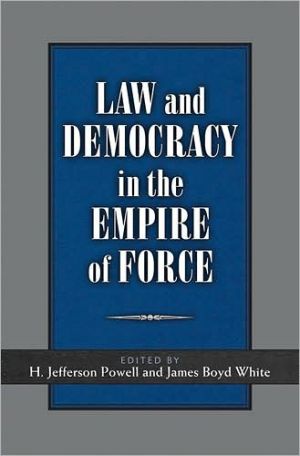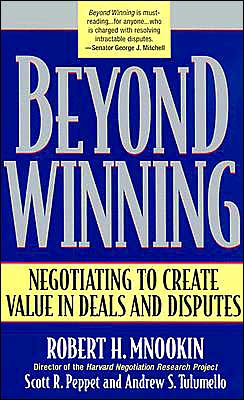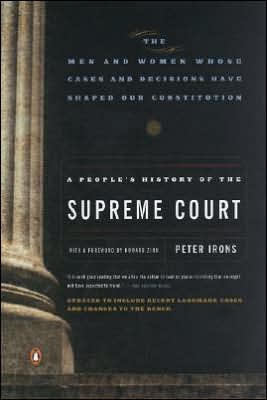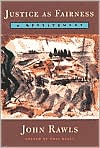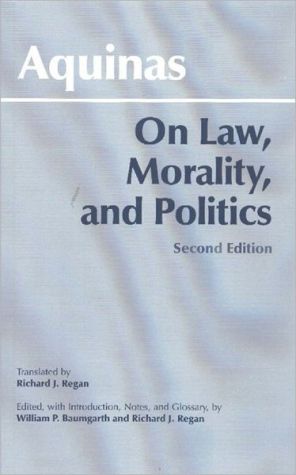Law and Democracy in the Empire of Force
The authors of this book share a concern for the state of law and democracy in our country, which to many seems to have deteriorated badly. Deep changes are visible in a wide array of phenomena: judicial opinions, the teaching of law, legal practice, international relations, legal scholarship, congressional deliberations, and the culture of contemporary politics. In each of these intersections between law, culture, and politics, traditional expectations have been transformed in ways that pose...
Search in google:
Neither law nor democracy can survive where the empire of force dominates
Law and Democracy in the Empire of Force\ \ THE UNIVERSITY OF MICHIGAN PRESS\ Copyright © 2009 University of Michigan\ All right reserved.\ ISBN: 978-0-472-11684-3 \ \ \ Chapter One\ Languages of Politics in America \ * * *\ Jedediah Purdy\ How do Americans imagine themselves and their government? What past, what future do they create for themselves, driven by what values and hopes and fears, shaped by what conception of themselves? Such are the questions Jedediah Purdy pursues in this essay. His investigation is necessarily historical, for these questions would be answered differently at different times in our history; it is also in one sense political, for it is often the case that the struggle between parties, or candidates, is about the right way to imagine ourselves.\ In his exploration of the transformations that our language of politics has undergone Purdy makes use of many pieces of evidence, but focuses especially upon the form we know as the presidential inaugural address, the moment at which the newly elected president seeks to articulate a vision that will command widespread assent, including among his political opponents. The sequence he traces, from Jefferson and Lincoln through Wilson, Roosevelt, Johnson, Reagan, Clinton, and the two Bushes, defines our present situation as what Purdy calls a tepid consensus, the exhaustion of political language. The question he presents and begins to answer is how our language of politicsmight properly be given new life, direction, and shape. He begins by sketching our recent history and present situation, topics to which he returns at the end.\ It may seem natural to dismiss presidential inaugural addresses as pabulum and vague uplift. One sounds a lot like the next, and none sounds much like the way we talk when we know what we mean to say and trust that the listener can hear it. These presidential speeches feel exhausted, congested, trapped in language that sounds more like a worn-out ceremony than like a living stream of words. This dismissal is not just a cynical mistake: there is a lot of truth in it. It has not always been that way, though. Of course, presidential speeches have always been calculated and in some ways artificial. They have never used the language of everyday life. But the kind of artificiality they convey today is special, and understanding it is a way to get at the exhaustion of political language in general. It is also a way to see what would have to change for political language to be more alive than it is now-and how difficult that change might be.\ The inaugural address falls in a pivotal moment. Now that the energy and animus of the campaign have begun to drain away, the president has to take on a different kind of persuasion: not reinforcing the loyalty of his supporters, but showing voters who lost, who may have spent the campaign season mistrusting and disdaining him, why he deserves a share of their loyalty, too. Presidents have always marked the day as a turn from partisan to national identity, since Jefferson declared at the end of a bitter campaign, "We are all Republicans, we are all Federalists." Moreover, since that first address of Jefferson's, new presidents have treated the inaugural as a time to set out their interpretation of the American constitutional community.\ Woodrow Wilson gave this custom a new democratic inflection in 1913, describing himself as interpreter in chief of the electoral tumult that had put him in the White House. Using a new term to describe what he would do in the address, he offered "to interpret the occasion" and argued that the Democratic victory was important beyond the sake of the party, because "the Nation ... now seeks to use the Democratic Party ... to interpret a change in its own plans and point of view." This imagery added something essential to the president's role. Earlier presidents had cast themselves foremost as bearers of constitutional principle, not wholly unlike the justices of the Supreme Court. Wilson's new chord was more romantic and visionary. The president was to try to give a voice, a coherent aim and attitude, to the diverse and inchoate motives that had swept him to power. He was now a kind of democratic oracle, tasked with expressing not just the ground rules of constitutional community but its emotional-even sensual-quality and the people's active power to redefine their political life through action.\ Inaugural language has always addressed the theme of dignity: what gives a citizen a place to stand and esteem in his or her own eyes and those of others, and how does the political order help make this dignity real? This question is nested within a more general one: what gives an individual life its value? It also contains a more specific question: what is the role of the state, the institutional expression of political power, in relation to the value and dignity of life?\ THE TEPID CONSENSUS\ For nearly twenty years, since the election of George H.W. Bush in 1988, the main themes of American political language have not been political at all. Instead, they have concentrated on private virtue, the personal qualities that uphold good families, workplaces, and civic organizations. Although there is precedent for this kind of talk, it is new in important ways. Its central ideas-character, responsibility, and service-have never before figured so prominently or in such apolitical ways as they do now.\ The major landmarks in this consensus, the two inaugural addresses each of Bill Clinton and George W. Bush, took place in decades of political animosity. Partisans on both sides learned to disdain the other party's president as a moral or intellectual degenerate and to suspect his adamant supporters of being not fully American-or, maybe, the wrong kind of American. But imagine you were to read both presidents' addresses as a visitor from another century, unfamiliar with local partisan cues, such as Republicans' propensity to mention charter schools in a positive light while Democrats keep silent because of their debt to teachers' unions. You would notice a difference in the frequency of religious language: God figures in the critical moments of Clinton's speeches and throughout Bush's. Of course, Bush's second inaugural includes a great deal of war talk. Otherwise, you would probably get the impression of a profound moral consensus, where the same terms and ideas anchor both parties' rhetoric. You might also suspect that you had come across a political culture whose members had no idea what their political life was for-none, anyway, that they could take seriously themselves.\ Recent presidential language takes its shape around a few landmarks. Responsibility is a touchstone word for both Clinton and Bush. In his first inaugural, Clinton defined "what America does best: offer more opportunity to all and demand more responsibility from all." It was time, he said, "to break the bad habit of expecting something for nothing, from our government or from each other," and time to "all take more responsibility, not only for ourselves and our families but for our communities and our country." Four years later, he announced that "we need a new sense of responsibility for a new century" and, again, that "every one of us, in our own way, must assume personal responsibility, not only for ourselves and our families, but for our neighbors and our nation." George W. Bush dedicated his 2000 nomination address to the theme of responsibility, urging a "responsibility era." In his first inaugural, he called America "at its best ... a place where personal responsibility is valued and expected." He celebrated responsibility as "a call to conscience" that, although "it requires sacrifice," brings us into "the fullness of life not only in options but in commitments."\ Service, too, is a central term in both presidents' language. In his first inaugural, Clinton challenged "a new generation of young Americans to a season of service," called "serving" the key to the "simple but powerful truth" that "we need each other," and declared, "From this joyful mountaintop of celebration, we hear a call to service in the valley." In 2001, explaining that "what you do is as important as anything government does," Bush urged citizens "to serve your nation, beginning with your neighbor," and to build "communities of service and a nation of character." Character is another defining word in this lexicon. In an alliterative catalogue of personal virtues, Bush's 2001 speech called for "a new commitment to live out our nation's promise through civility, courage, compassion and character." Four years later, he explained, "In America's ideal of freedom, the public interest depends on private character-on integrity, and tolerance toward others, and the rule of conscience in our own lives. Self-government relies, in the end, on the governing of the self. That edifice of character is built in families, supported by communities with standards, and sustained in our national life by the truths of Sinai, the Sermon on the Mount, the words of the Koran, and the varied faiths of our people." Clinton did not rely in the same way on the word character, but he did declare in 1997, "The greatest progress we have made, and the greatest progress we have yet to make, is in the human heart. In the end, all the world's wealth and a thousand armies are no match for the strength and decency of the human spirit."\ This constellation of virtues is at once personal, residing in individuals, and interpersonal, essentially concerning their ties with others. Interdependence is the key moral insight for both presidents and unites their language across partisan differences. While Clinton announced the "simple but powerful truth" that "we need each other" and "we must care for one another," Bush explained that "the exercise of rights is ennobled by service" because "liberty for all does not mean independence from one another." In keeping with this emphasis, this political language also leans heavily on community and communities, not merely as descriptive words, but as moral terms for groups of people who recognize their responsibility of service to one another. Character, similarly, is employed not to describe good, bad, or merely quirky personality but as a moral word for the qualities of responsibility and service that make such communities possible.\ These personal and social virtues are good and important. But such undeniable values are not the basis of an idea of political community. Rather, they are a substitute for it, a confection of irresistible facts about human beings in general that is very little help in thinking about human beings in a political community-at least, in this political community.\ One of the first things to appreciate about this political vocabulary is how new it is. To be sure, George Washington held that a country's political institutions depend ultimately on the virtue of its people, but for roughly the first two centuries of American independence, political language concentrated on specifically political ideas. Character was a description of personality or outlook, not a moral term, and virtue, its obvious cognate, tended to mean such political virtues as love of liberty and respect for rule of law. Responsibility and service overwhelmingly referred to the duties of public office, usually the presidency itself. The language of sacrifice and dedication, famously associated with John F. Kennedy's inaugural call to "ask what you can do for your country," was reserved for wartime and the geopolitical struggle of the cold war, which was how both Kennedy and Dwight Eisenhower used it. (Kennedy's famous sentence was a bridge in a series of exhortations to advance the cause of American freedom around the world.) Before the cold war, such language was mostly absent even from wartime inaugurals: presidents did not dwell on the grim prospect of sacrifice in the speeches intended to define national community. Even Lincoln's Gettysburg Address is a call not to sacrifice-the melancholy and humane president was out of appetite for that, if he had ever had any-but to political hope in sacrifice's aftermath. Community was a neutral noun rather than a moral concept; it designated communities of interest, political jurisdictions, and the international community of civilized nations.\ Private virtue began to occupy the center of political language only with Richard Nixon. Nixon's inaugurals form a kind of bridge between the old, political register of virtue and the new, private register. Nixon first used responsibility in its private sense, arguing in 1969 that national greatness rested above all on "those small, splendid efforts that make headlines in the neighborhood newspaper instead of the national journal." Pressing the theme further in 1973, he urged the country to turn away from "attempting to gather all power and responsibility in Washington. Instead, he insisted, "A person can be expected to act responsibly only if he has responsibility.... Let us locate responsibility in more places. Let us measure what we will do for others by what they will do for themselves.... Let us remember that America was built not by government, but by people-not by welfare, but by work-not by shirking responsibility, but by seeking responsibility."\ The way Nixon introduced the theme is a second key to understanding our present political language. Private virtue, particularly responsibility, was the counterpoint to Washington and "government." Responsibility filled the void that opened up when the ambitions of government receded. It was a major theme of both of Nixon's inaugurals, especially the second, that Americans had asked too much of government and not enough of one another and themselves. Characteristically, he managed to sound small-spirited as he self-consciously echoed Kennedy: "let each of us ask-not just what will government do for me, but what can I do for myself?" Nonetheless, he pioneered a formula that pervades today's political speech. Clinton's language of service and responsibility was a way of working out the idea that government, while not the source of all problems, "is not the solution." "We, the American people," he argued, "we are the solution." Clinton's insistence on the limits of government was louder than Bush's, perhaps because he was pressing against the stereotype of the big-government liberal, while Bush does not labor under that shadow. The exile of government from civic identity, which Nixon set in motion, is nearly complete in Bush's speeches.\ This highlights the third key to understanding our political language. It is not just that private virtue is now honored as a necessary strut of a working public life. Instead, the most important part of political language, connecting government and public life to people's sense of life's meaning and purpose, now relies almost entirely on a vision of private and social virtues. In this vision, circles of concern work outward, through affection and interdependence, from the family through church, friendship, and other concrete forms of moral community. Participation in these relationships is the civic and moral dimension of the personal life that the language of private virtue expresses. The only political quality about this language is that the speaker occupies the country's most powerful and visible political office. This language speaks to people as complex animals, moral and social beings, but not as citizens, unless citizen means simply a person who is aware of the interdependence that social life brings and takes it seriously.\ It may be a symptom of exhausted political language when intense partisan hostility sits alongside large agreement about the moral vision of politics. This is even more so when political language sets out the inferiority of political acts and values to personal ones. This language is certainly truthful in one important respect. Americans today mostly feel that the best and highest goods in life come through family, friendship, spiritual development, and other parts of personal experience. We do not tend to believe that a thing is ennobled because it is collective, touched by state power or a partisan movement, or otherwise political. We like our values concrete, embodied in our own experience and in people that we can see and touch and name.\ This political language is remarkable for its remoteness from distinctly political questions, those about the purposes and limits of the unique power of the state. How did we come so far from those? The answer involves the whole story of American political language, from the earliest efforts to describe the connection of political community to individual dignity through a long, hard struggle to redefine that connection for the complex economy and hugely expanded government of the twentieth century. In important ways, the leading figures of American politics abandoned that struggle in the 1970s and, especially, the 1980s. We are living in the remnants of a collapsed rhetorical tradition. Our intensely personal language of political community, composed in the absence of political vision, is what we have left.\ (Continues...)\ \ \ \ \ Excerpted from Law and Democracy in the Empire of Force Copyright © 2009 by University of Michigan . Excerpted by permission.\ All rights reserved. No part of this excerpt may be reproduced or reprinted without permission in writing from the publisher.\ Excerpts are provided by Dial-A-Book Inc. solely for the personal use of visitors to this web site. \ \
Contents Introduction....................1Languages of Politics in America Jedediah Purdy....................7Democracy and Prophecy M. Cathleen Kaveny....................33Ennobling Politics Robin West....................58An Oresteia for Argentina: Between Fraternity and the Rule of Law Martin Böhmer....................89Moral Disagreement in a Culture of Certainty Howard Lesnick....................125The Resilience of Law Joseph Vining....................151Justice Jackson's Republic and Ours Barry Sullivan....................172Privacy's End Jed Rubenfeld....................207Anti-Social Behaviour Orders in the United Kingdom A.W. Brian Simpson....................230Conscience and the Constitution John T. Noonan Jr....................238Law as a Tool H. Jefferson Powell....................250Law, Economics, and Torture James Boyd White....................265Contributors....................285
